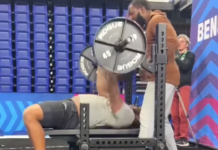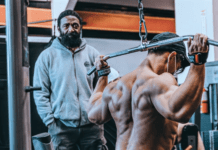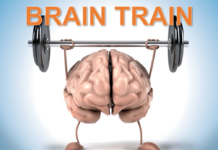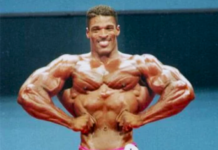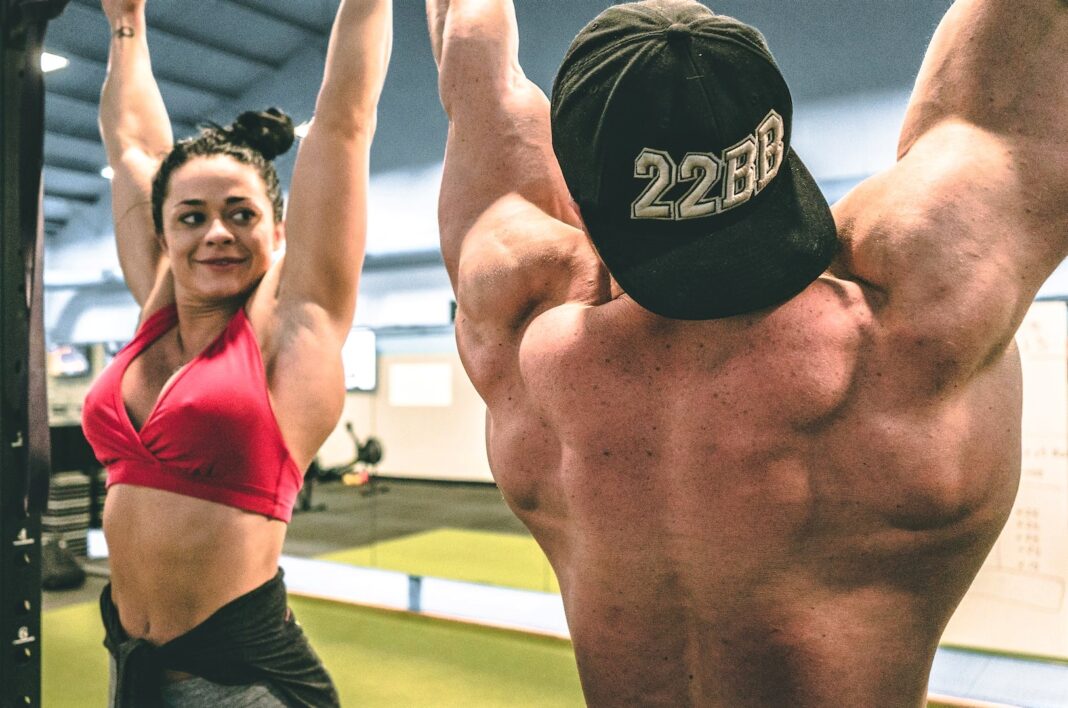Ryan Snaadt
Lewis and Clark. Lennon and McCartney. Batman and Robin. Some people do their best work as half of a duo. They know each other’s strengths and weaknesses and how to bring out the best in each other. And so it is with working out. The right training partner knows just when to lend encouraging words or helping hands to push your sets beyond previous limits. The wrong partner, however, can hinder or even halt your progress. By analyzing the pros and cons of training partners, we explore what makes a good workout and whether you should trade sets with someone or go it alone.
PRO: HELPING HANDS
A training partner is a full-time and expert spotter. He’s always there to come to the rescue if you falter, as well as to add just enough pressure to assist on those final reps. Because he observes you in workout after workout, he should know precisely when and when not to intervene when your set falters.
See also: Spotters Improve Bench Press Strength 11%+
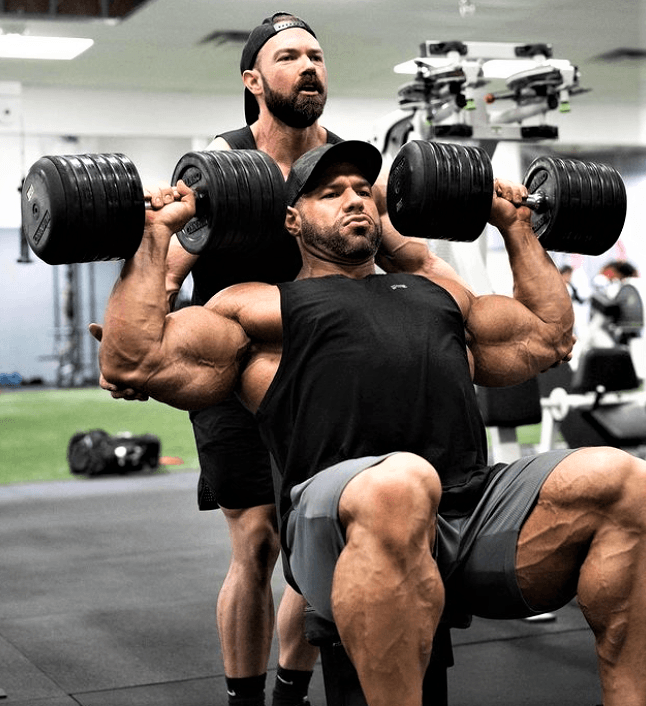
CON: COMPROMISE
If a perpetual spotter is typically the best thing about a partner, the need to compromise or acquiesce can be the worst thing. Weight-training is very individualized. What works best for one person may not be best for another. You need to find the program that works best for your body, not your partner’s. If training partners fundamentally disagree on crucial matters like workout frequency, training style or choice of exercises, disband the partnership. If you have minor disagreements during a workout, be willing to do different exercises or incorporate divergent styles, even if it means training alone for those sets. Don’t compromise if it harms your workout.
PRO: ENCOURAGEMENT
A good training partner knows the right words of encouragement as you’re struggling for those final reps. Likewise, knowing he depends on you should be enough to drive you through a cardio session you’d rather not do or a final two sets when you’d rather be on your way home.
CON: DEPENDENCY
The other guy or girl needs to show up at the agreed upon time and be in the proper frame of mind. You don’t want to have to wait a half-hour to get started or hear him or her whining about his significant other when its time for your sets. Workouts have a rhythm, and if your partner isn’t there for you in body or spirit, it will invariably disrupt your training.
PRO: INTENSITY
Having a regular spotter who knows your threshold allows you to safely push sets to failure. Just knowing the guy behind you is your good friend and not a stranger can mean you use another 20 pounds or you go for that seventh rep when your previous best was six. He can also help you go beyond full-rep failure, by aiding with such techniques as forced reps, negative reps, and drop sets.
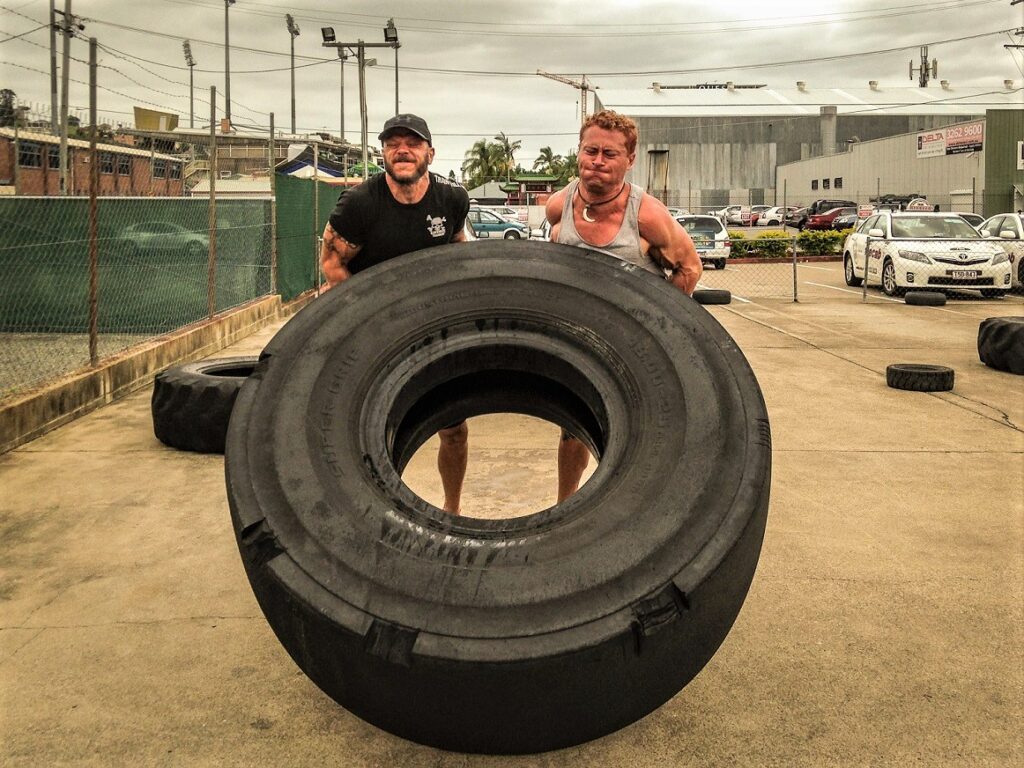
CON: DIFFERING AGENDAS
If you and your training cohort are frequently clashing over workout philosophy, the partnership is probably doing more harm than good. For example, if you’re looking to gain strength and she’s trying to lose weight or he’s a high-intensity, low volume advocate and you grow best on 20 sets of 10-12 reps per bodypart, working out together is not in the best interest of either of you.
PRO: SECOND OPINION
It’s a great advantage to have someone watching you workout who knows your abilities. Like a good personal trainer, he can tell you when your form is wrong or when your intensity is waning. Furthermore, ideal training partners are at a similar level of development, strength, and experience, and the two (or three) of you can share your training and nutritional knowledge and gauge how various exercises, techniques, and dietary decisions affect your physiques.
CON: DISTRACTIONS
Having a friend to converse with between sets and offer encouragement during sets is generally positive, but too much of a good thing is a bad thing. A workout isn’t a time for a deep conversation or debate. Don’t let your partner distract you from the goal at hand. Your personalities need to mesh. If he isn’t a person you would frequently hang with outside the gym, it’s likely he won’t be a person you’ll want to hang with every time you enter the gym. Also, more than three people together is a crowd, and sometimes three is a crowd. Generally, trading sets with only one other person is best for compatibility and speed.
PRO: TEAM SUPPORT
Depending on your personality, you may simply progress better with others than you do by yourself. Athletes who transition to bodybuilding from team sports may prefer the comradery and shared dependence of one or two workout “teammates.” Especially in the 21st century when hardcore gyms and their “iron family” mentality is slipping into history and everyone has their earbuds in, working out regularly with someone who shares your bodybuilding goals can bring a familial purpose and reassurance to your training.
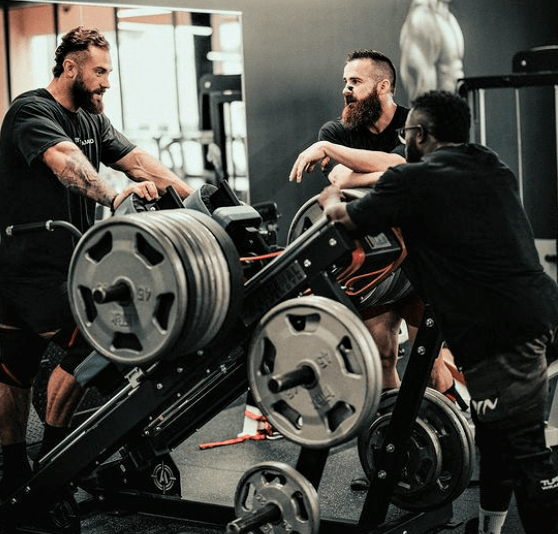
CON: INDIVIDUALITY
Friendship and shared goals are terrific, but ultimately the time you spend training is about improving your own body. If—for whatever reason—your training cohort is more of a distraction than a compliment, you would progress faster if you trained alone. Don’t let “teamwork” deter you from your own goals.
GOOD VS. BAD PARTNERS
Legendary bodybuilder Branch Warren, who trained mostly (and very intensely) with fellow pro Johnnie Jackson, told us this about training partners:
“The value of a training partner depends on the person. You need someone who’s dependable, someone who’s always there and there’s no nonsense. When me and Johnnie come into the gym, it’s like going to work. There’s no B.S. You go straight to work and get the workout knocked out. Your training partner should motivate and inspire you. If there’s someone like that, then I think a partner is a real asset. If you have someone who’s not dependable, they show up late or don’t show up at all, or they sit around and talk and don’t stay focused, then I think it’s a detriment, and you’re better off training by yourself. I went through a lot of training partners when I was younger, guys who just didn’t take it seriously enough. You need someone who takes training as seriously as you do.”
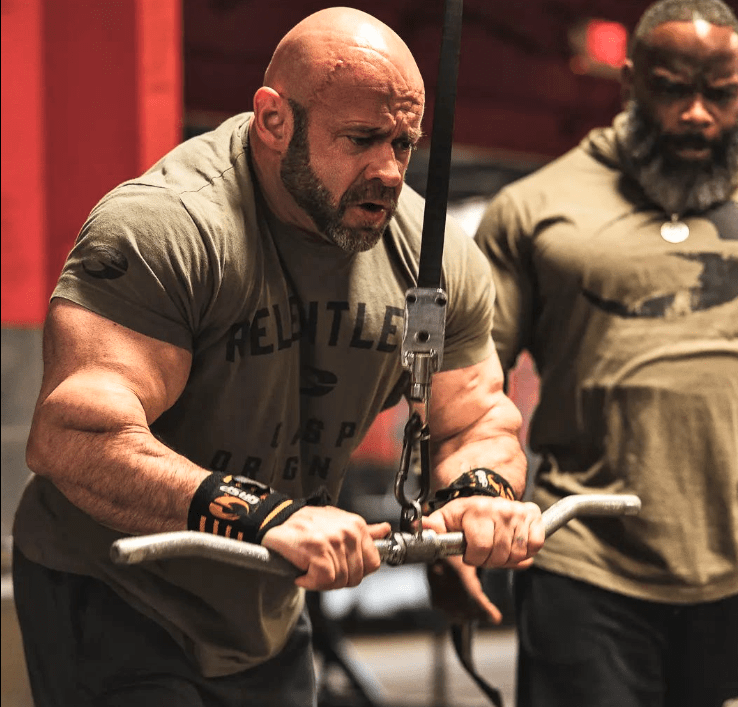
YOUR CHOICE
Bodybuilders like Branch Warren and Johnnie Jackson thrived training together while in the same gym 8-time Mr. Olympia Ronnie Coleman hoisted legendary weights all by his lonesome. Some people do their best work as part of a duo, while others can only reach the highest notes as solo artists. Often, it simply comes down to whether or not you can find someone (or someone finds you) who meets the criteria of a good training partner. A dependable, supportive comrade who shares your philosophy and goals can drive you further faster than you could go alone, and the journey will be more fun when shared with a friend. On the other hand, an undependable, unsupportive partner who forever forces you to compromise will make you long for solid gains and solitude. Choose wisely.

